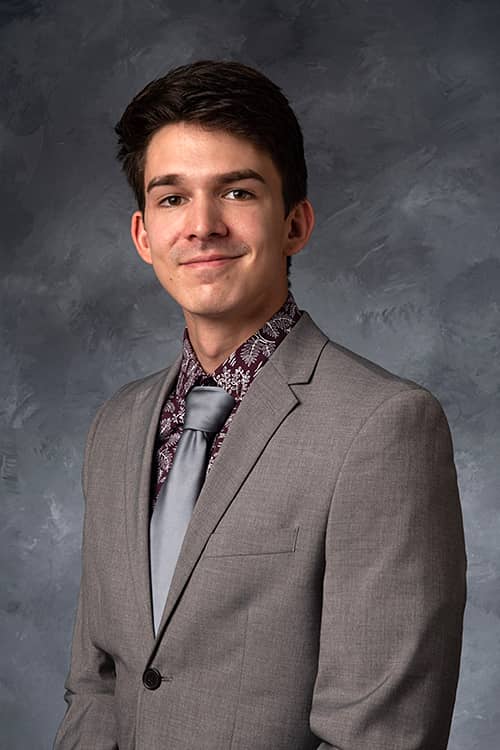
Joseph Coll, Ph.D. student, Political Science
Investigates access to the ballot box
• Hometown: Alta, Iowa
• Faculty mentor/advisor: Dr. Tolbert
• What is your degree program and expected graduate date? PhD., Political Science, May of 2022
• Please describe your research: My research focuses on voting, elections, and representation. My current research agenda investigates the effects of electoral reforms, such as early voting and voter identification laws, on voter turnout of different demographic groups.
• In simple terms, why does this research matter? Knowing more about how these reforms affect voting, particularly, that of different groups, is important for democratic participation and legitimacy. First, it is important that we know how these laws affect voting to ensure that the benefits outweigh the costs and that voters (or groups of voters) are not being disenfranchised. Second, public support for different laws can affect whether they get enacted and the degree to which the public views the resulting election as legitimate. It is important that people have all the facts when considering the legitimacy of a law and election outcomes.
• How soon after starting at the University of Iowa were you able to participate in research? I was able to begin research my first year.
• How has being involved in research made you more successful at the University of Iowa? It has given me the opportunity to pursue my own research agenda.
• What are your career goals and/or plans after graduation? I plan to teach political science courses while also continuing my research.
• Does your research have connections to or implications for COVID-19? Please explain. Public perceptions of these laws can factor into what states have which laws (e.g. which states made voting easier during COVID-19), who uses them (e.g. Democrats more likely to use mail-in-ballots in 2020) and how they view the legitimacy of the election (e.g. Republicans more likely to think mail-in-ballots are fraudulent). My research can help establish the facts related to questions such as these, as well as determine the effects of different choices states made to protect their voters during COVID-19 on who voted and how.
Banner location: online—
